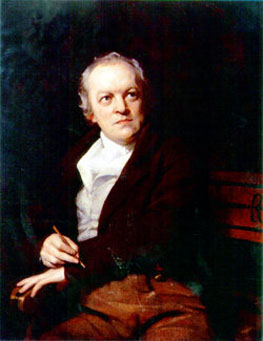|
TO SUMMER O thou, who passest
thro' our vallies in That flames from their large nostrils! thou,
O Summer, Beneath our thickest shades we
oft have heard Thy voice, when noon upon his
fervid car Our bards are fam'd
who strike the silver wire:
|
|
Reading only the title of this poem, I can presuppose that
William Blake will be going to refer and speak to the summer as it was a
person, he will be going to allegorize, personify the abstract concept of
summer.
The first reading of the poem confirms me that the
poem is about summer and the author speaks to it as a person. The first
impression that I have had from this poem is that this is written in a positive
tone.
The
author writes about nature but especially about that alive and fascinating
nature that we can behold in summer.
Summer comes to us, and the poet makes a comparison
about the way of that strong arrival, like “fierce steeds” and as if
summer pitches on us a golden tent with its wrapping hot, illuminating our
surroundings as with a golden cloth.
The
author, also, writes about the joy we have when we behold the arrival of
summer, because the contact with nature and its influence is the romantic idea
of sensations of nature.
In the second paragraph, we can see like the hour of noon
is coming as if it was a person with a fervid car going through the heaven, and
after, that noon sits down with the springs, the mossy vallies,
etc, as if it was showing its esteem towards nature.
Nature feels the same about summer, the author writes
in the last verse of this paragraph: “our vallies
love the Summer in his pride”, because summer
gives to nature all its glory and beauty as we can see.
In the last paragraph, the poet argues that people
feel happy with the arrival of summer, the “maidens fairer in the sprightly
dance”, and ends writing that in summer we lack not songs, joy, etc,
because it is in this time when we celebrate popular parties.
The last verse: “laurel wreaths against the sultry
heat”, we see that the laurel wreath is the symbol of winners, and the
verse means that in summer the heat is sultry, but in spite of it, the good
aspects of summer have more importance because summer is the return of life and
joy, for nature and human beings.
The whole poem transmits me joy. With this text I can
remember the way I feel when summer comes with its strong and hot mantle, the
time when people are happier and nature turns into all its pride.
But, for me, the most significant of the poem is the
romantic way to speak about nature as if it was a person who receives summer
with open arms, who receives the life again, as if summer were our antidote
against the cold and dead winter and all of us waited for the arrival of summer
impatiently.
